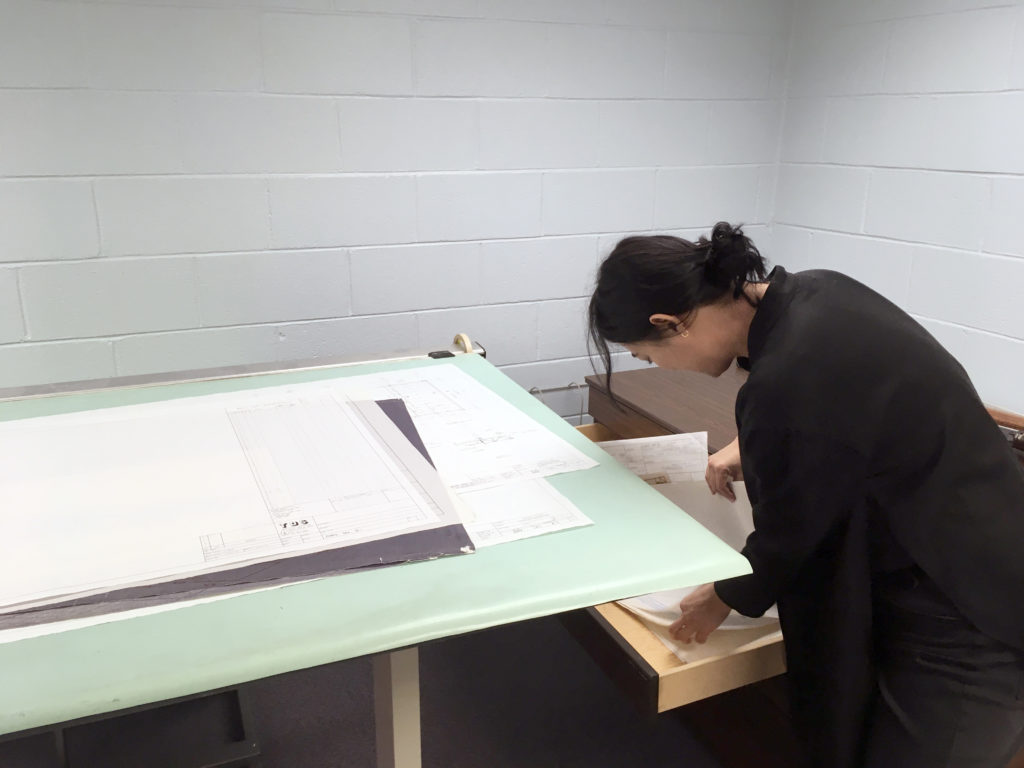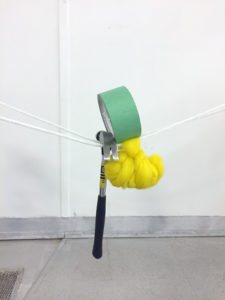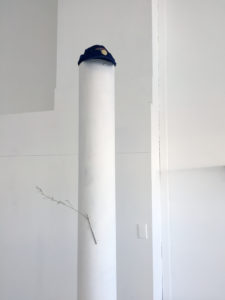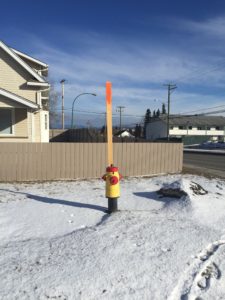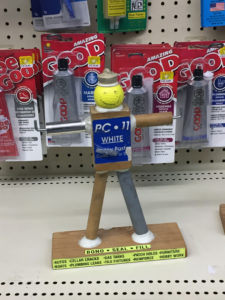Michelle Fu is an artist and designer who has arrived in Prince George as the March artist-in-residence at the Neighbourhood Time Exchange | Downtown Prince George. Earlier this month, Fu moved the 786 km from Vancouver to Prince George, but since then, the idea of moving has become a metaphor of sorts for the processes and methods she has begun to engage with in the studio on Third Avenue. In a recent Skype conversation with the artist, she described this time as one where she has begun “unboxing the things that were boxed away before.”
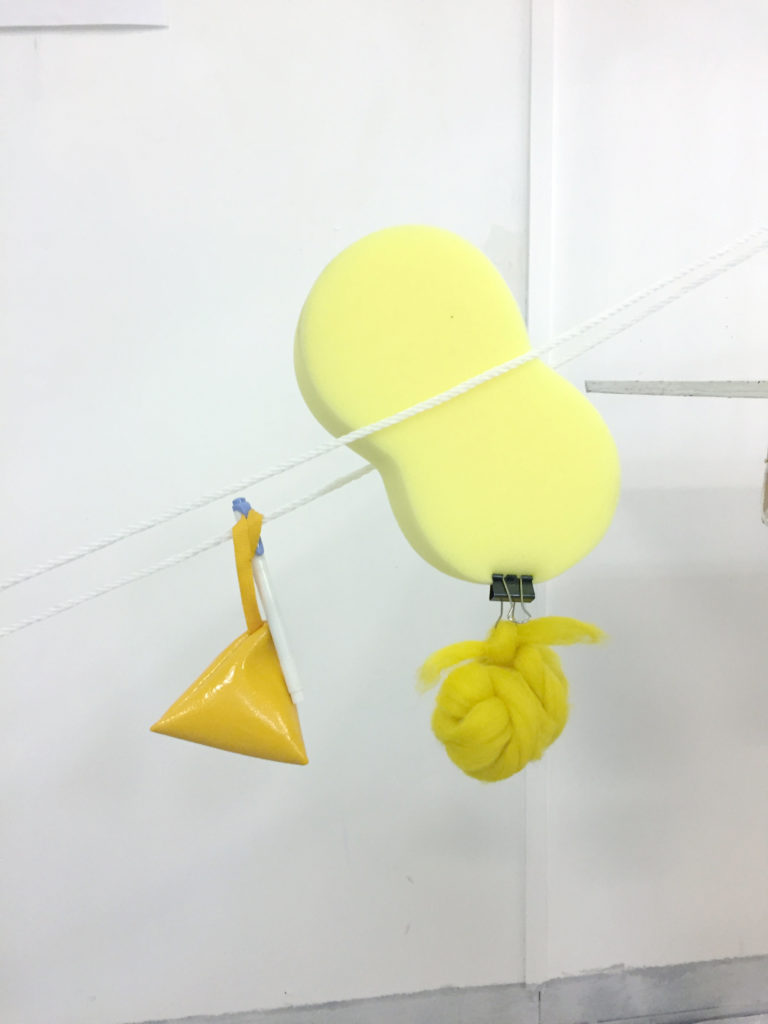
Rather than peeling the newsprint from dishes, plates, and cutlery, Fu is re-visiting several older components of her practice that have been laying dormant for the last few years. Pulling these ideas out from under the layers of other projects and initiatives her creative practice has been shouldering, she has been dusting off the things that fell to the bottom of the stack. One of these initiatives has been to revive an experimental process that involves piling, hanging, stacking, balancing, and stretching everyday objects into complex assemblages. These unusual soft infrastructures are often assembled out of the things that are on hand, including sponges, strings, pens, stationery, and other found objects.
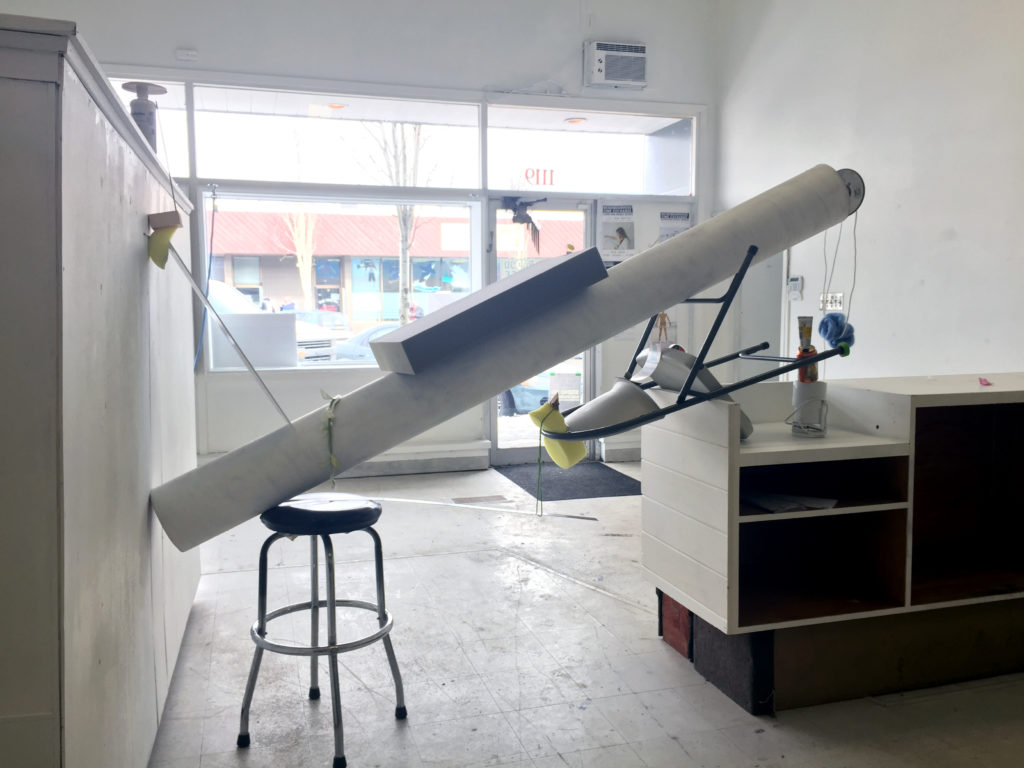
These temporarily counter-balanced configurations have a precedent in contemporary art practices, including Marilou Lemmens and Richard Ibghy, Real Failure Needs No Excuse (2012), or Fischli & Weiss, Equilibres (1984-1986, 2006). But, inspiration for Fu has also appeared in more quotidian ways in the downtown of Prince George. She has been capturing unusual appearances of these “stacks” in stores she visits, and streets she passes by, creating a mini-archive of instances where there is an anti-utility to the objects we see all the time. You can’t use a sponge if it’s tied to a string; you can’t use a golf ball if it has become the smiley-faced head of something else. Challenging the conventional uses or pragmatics of the designed world around us is something that funnels through Fu’s practice.
Fu’s design expertise and expansive knowledge on public and community-minded organizations will be feeding into the work Fu will be partnering on with Innovation Central Society’s Hubspace location, and Downtown Prince George’s “Good Neighbour” project. As co-founder of 221A in Vancouver, an artist-run organization that develops public infrastructure from social, critical or philosophical perspectives on designed media and space, Fu has made a substantial contribution to the arts that have had wide-reaching, international effects. This wealth of experience in community and collaborative design will support her two Community Partners. Moving into these institutions, Fu has already begun to unpack the various inventories of these local spaces as a way of thinking through how these organizations want to move forward, and where they want to go.
